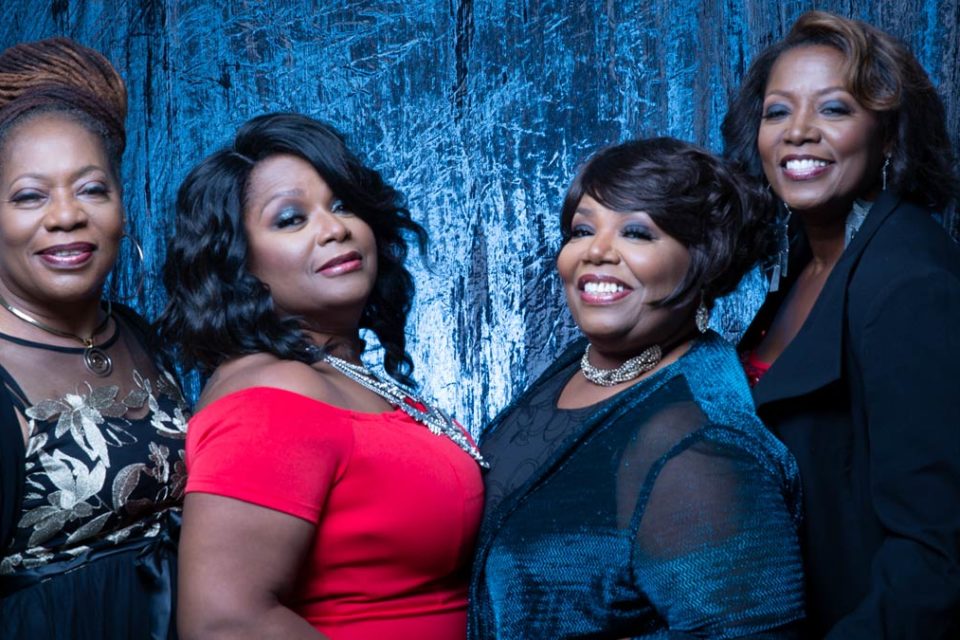It was nearly a decade ago that the documentary “20 Feet From Stardom” trained the popular music spotlight on fantastic singers who’d spent their careers contributing to the music of big-name performers. Many of those featured were Black women who had the chops, ability and sensitivity to elevate a pop arrangement with gospel or soul feel, and toiled in proximity to fame without enjoying even modest recognition or creative freedom themselves.
The McCrary Sisters lived a version of that, doing as much as any professionals in town to help define the stage and studio sound of Nashville. Some who hired the sisters to sing, including Buddy Miller and Mike Farris, went out of their way to recognize them and give them special billing.
But it was an exhilarating thing indeed when Ann, Regina and Alfreda, veterans of the music industry and, particularly in Alfreda’s case, church music ministry, came together in 2010 with their other sister Deborah, who’d long worked as a nurse and passed away last week after a series of strokes, to perform as a quartet under their family name. It was then that they could finally make their singular vocal blend and bond the focal point, build a repertoire that accommodates the array of styles that speak to them and truly start to get their roses.
There was a sense of both destiny and self-determination to the belated launch of a quartet made up of siblings who’d been schooled in singing in their own home as kids by golden age gospel talent. Their father, the Rev. Sam McCrary, led the legendary a capella group the Fairfield Four, which had ties to significant parts of Nashville’s radio and recording history, and they hosted a couple of generations’ worth of gospel greats in their home.
The McCrary Sisters own albums, three cut in the studio and one capturing a live concert, make room for each of their voices, and the lived wisdom and performing insight they’ve collected. Stylistically, they’re as comfortable singing sleek, contemporary material as they are the downhome fare they learned from their dad’s group. What unites their originals is their blend of staunch, inviting joy, tenacious, buoying faith and awareness that the struggle to overcome all manner of hardship and heartache is onerous. That spirit, and Deborah’s voice, will be present even in the new music that they’re preparing to release sometime soon.
In the meantime, here’s an abbreviated history of their musical journey, in nine performances.
In this Fairfield Four performance from the 1980s, late in the Rev. Sam McCrary’s tenure, he’s the one doing that show-stopping slide with his vocal pitch during their signature number “Don’t You Let Nobody Turn You Around,” a move that he was well-known for and passed on to his daughter Regina, who put it to use when the sisters re-recorded the tune with surviving members of the Fairfield Four.
Several of the sisters took part in the B.C. & M. Mass Choir, an interdenominational youth ensemble based in Nashville that recorded albums for a subsidiary of the Nashboro label beginning in the late ‘60s. Ann was the featured lead singer on this number.
In the late ‘70s, Regina took a gig singing with Stevie Wonder and then joined Bob Dylan’s touring band, playing a prominent role throughout his born-again era.
Decades, and countless contemporary gospel, country and pop sessions later, the sisters found themselves in demand for Americana sessions, and started working with a slew of artist who wanted to recapture the full-throated abandon of an earlier era of gospel. Buddy Miller’s 2004 album Universal United House of Prayer was one of many on which they left their indelible mark.
After they began doing their own shows, the McCrary Sisters often included a capella numbers, their version of the sophisticated but unaccompanied style they’d learned from their elders.
McCrary Sisters originals also encapsulate more modern outgrowths of R&B. Ann sings commanding lead on the funky, discofied number “Train,” over a groove worthy of Labelle.
Regina has contributed compositions like “Victory,” that hearken back to that late ‘90s moment when gospel choirs and hip-hop came together in new hybrids. Those kinds of songs are occasions for the McCrary’s to invite younger members of their family, and their backing musicians’ families, on stage.
Each sister possesses a distinct vocal timbre, style and range. “He Cares,” a sumptuous gospel-soul song that Alfreda wrote, is a chance for her to make use of her elegant phrasing.
Even though Deborah had spent the longest time away from performing, she had a valued place in the group, singing the bass parts. After an earlier stroke, she wrote the song “Let It Go,” about the tension between relinquishing worry and remaining in control. The way that Regina powered live performances of the song with such effervescent conviction, sometimes telling the story of how Deborah came to write it, is just one example of how the sisters were there to help hold up one of their own.

